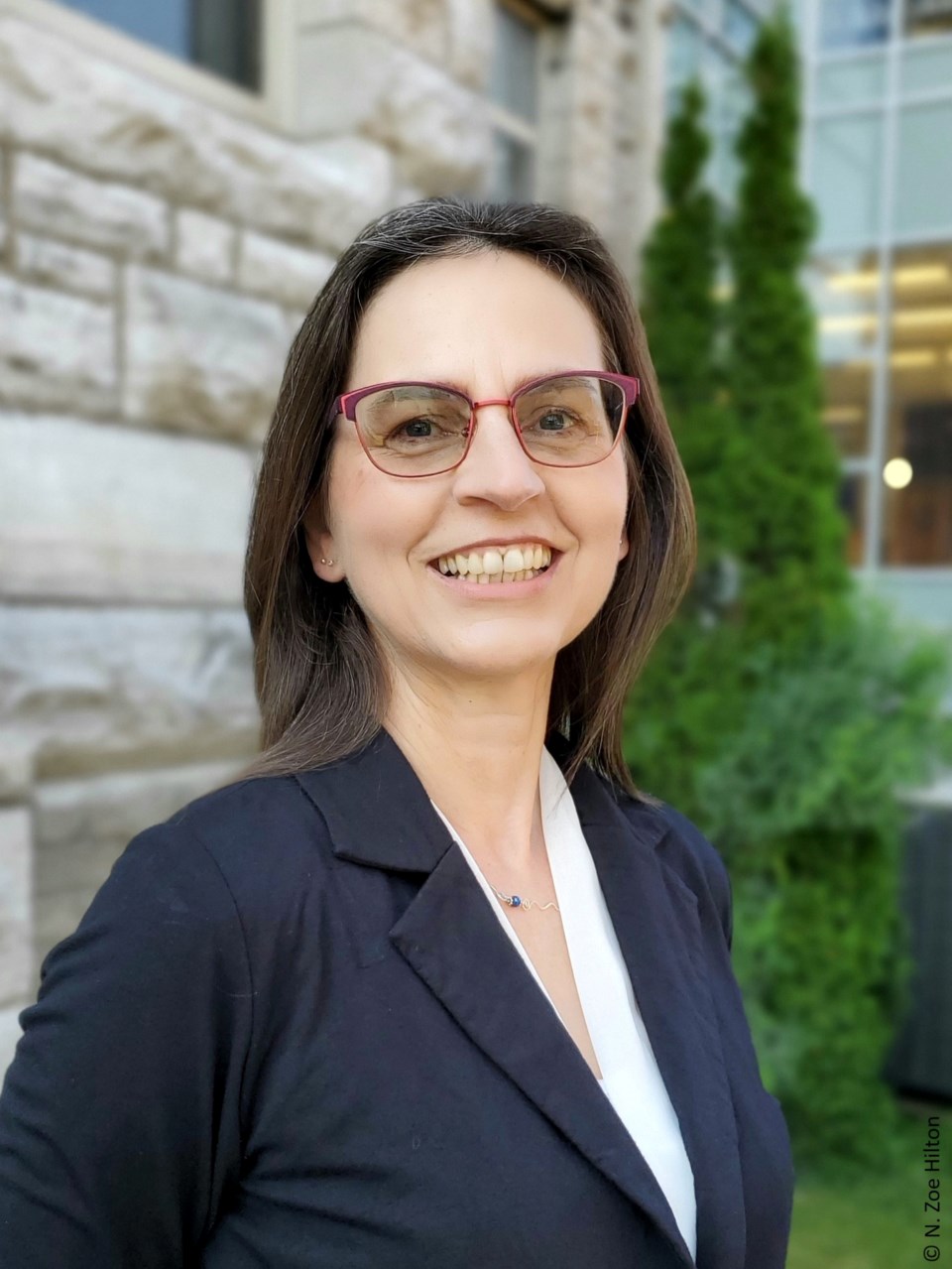Intimate partner violence has become a hot topic at the provincial and federal government levels, but a local researcher has dedicated decades to a risk assessment tool on that very issue.
Zoe Hilton is the research chair in forensic mental health at the Waypoint Centre for Mental Health Care in Penetanguishene, employed by the hospital for over three decades including a position as senior research scientist with the Waypoint Research Institute.
At the core of Hilton’s research is the ODARA – the Ontario Domestic Assault Risk Assessment – a decades-old tool used in risk assessment by estimating the level to which a man would enact a repeat assault on his partner, as compared to other domestic offenders.
“It was actually some high profile femicides in Ontario in the 1990s that spurred a research collaboration between the researchers in Penetanguishene and the Ontario Provincial Police (Behavioural Sciences and Analysis Section),” Hilton explained.
“It was doing research in a collaborative research strategy that resulted in the ODARA, which is now embedded in the domestic violence investigative tools that offices use throughout Ontario. And outside of Ontario, it's used specifically as a tool in itself.”
The ODARA uses a 13-item scorecard to weigh low- and high-risk evaluations of intimate partner violence. As objective feedback for evidence-based authorities, the tool can help to inform policing or probation authorities on the level of risk assessment and supervision intensity an individual may require.
“Those items were selected through a rigorous process during the research that my colleagues and I conducted,” noted Hilton. “I think we're up to about two dozen studies at this point, by my colleagues and myself, but mostly by researchers not associated with Waypoint.”
Additionally, solicited feedback allows Hilton and her team to continually upgrade, evaluate, and maintain the program.
Due to the success of the ODARA, a globally-available online training program was developed called ODARA 101. Online training for the ODARA measured in dozens around 2000, but with increased funding and demand just under 1,800 people had completed the program as of 2023; Hilton credited her colleague Elke Ham as the program coordinator, developer and manager.
Hilton said demand for training was increasing, “as there are more regions that are adopting this kind of tool, and the ODARA specifically, for pretrial risk assessment in the U.S. for policing and probation to support that decision-making there, and also in treatment services.”
However, the program isn’t available for the general public.
Hilton explained that while inquiries do come in from students or researchers, “it's largely policing organizations, probation departments, child protection agencies, community treatment services – these organizations want their staff to be trained in the ODARA.”
One of the challenges Hilton faced which spurred the creation of the ODARA was in defining what qualified as high risk or low risk to begin with, necessitating a need to first develop a common language system so that “the result of a risk assessment tool means the same thing across time, across place, and across population.”
As a result, the Celia IPV project was created through a nation-wide partnership between researchers and police organizations, aiming to develop that common language.
“The Celia project has been going on for a couple of years now and we are well into our data collection, so we hope to have some preliminary results,” said Hilton, “perhaps in a few months or early 2025.
“Other projects that are coming out of the Celia project include looking at the role of coercive control in its partner violence risk. Most violence risk assessment focuses on that physical act of violence against an intimate partner, but researchers and practitioners, the people out in the community, are recognizing more and more that some non-physical forms of abuse can be risk factors for intimate partner violence as well – and for severe, potentially lethal, intimate partner violence.”
Hilton expressed pride in the work accomplished over her career, originally intending to focus on scientific research that was both of excellent quality while having practical utility.
“I wanted to conduct research that would help inform decisions made in the criminal justice system, treatments offered to people who are just as involved, and support provided to victims of offending," she said.
“Seeing how policing organizations like the OPP are really committed to evidence-based practice, to working with independent researchers, to evaluate and inform their services from this relationship – it’s been a big part of my career, and I’ve really benefited from this relationship with the OPP and other policing organizations,” Hilton stated.
